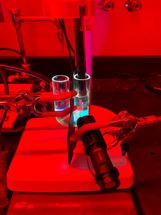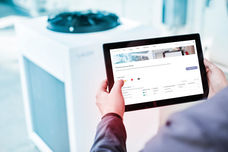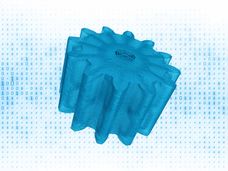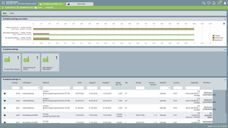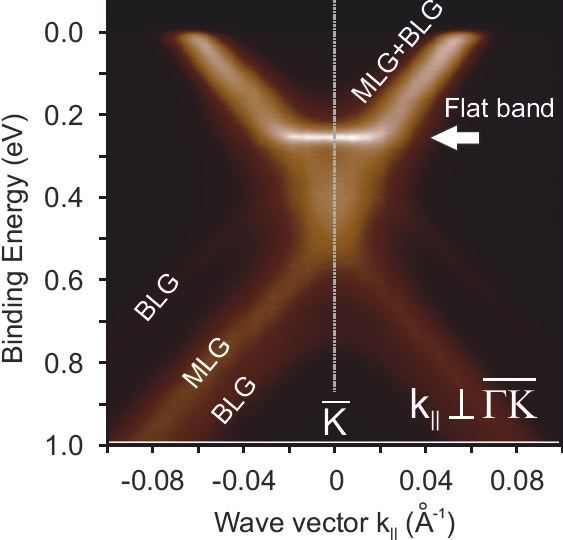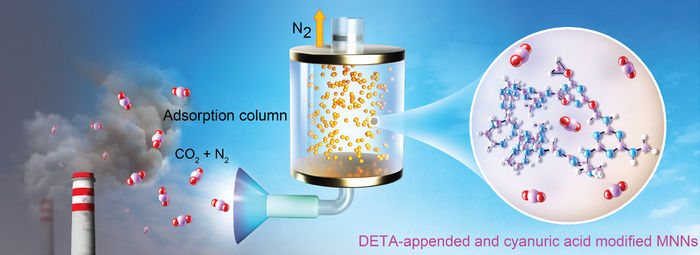Start-up develops software for companies to easily record carbon footprint for products
To be able to design products more sustainably in the future, companies need to know the corresponding carbon footprint. However, it is not easy to balance it. software currently being developed by the start-up greenable, a spin-off of the Technische Universität Kaiserslautern, aims to remedy this situation. Companies should be able to enter their data and record their carbon emissions without any prior knowledge. The founding team is currently being funded with an EXIST start-up grant from the German Federal Ministry for Economic Affairs and Climate Action. It will be presenting its software at the Hannover Messe in the Young Tech Enterprise Area (Hall 3, Stand A 20/B 08) from May 30 to 31.
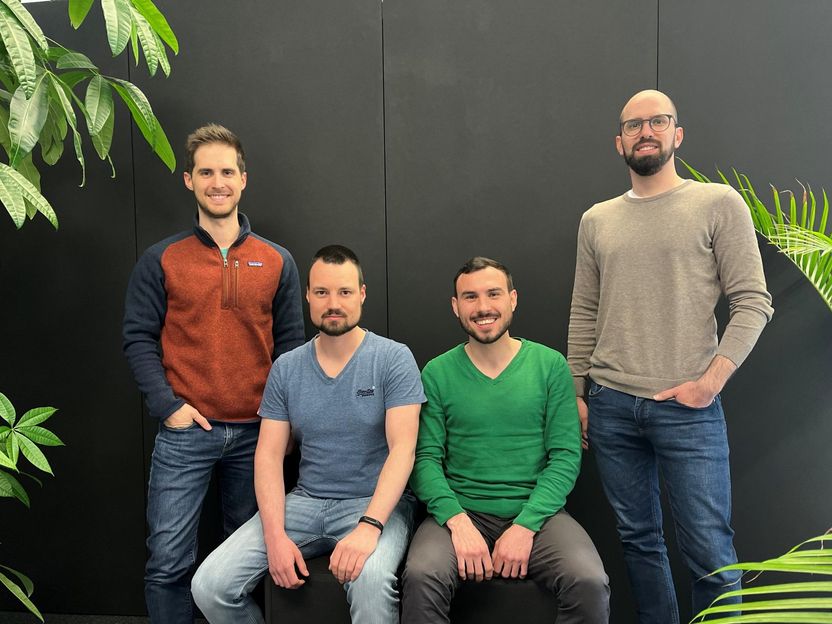
The greenable team (from left to right): Alexander David, Lucas Hartmann, Viktor Schiller, Patrick Kölsch.
greenable
Whether using the airplane or the car, charging the smartphone or tablet regularly - all of this contributes to our individual carbon footprint. What applies to private individuals is also the case for companies and their products. In the future, it won't just be legislative requirements that stipulate a carbon footprint. For example, there will be digital product passports in which the carbon emissions of the products must be listed. "But this is also due to customer demand," says Dr. Patrick Kölsch from greenable. Yet it is not easy for companies to determine actual consumption. "They often lack the know-how. We want to empower companies to create the specific carbon footprint for the different products they manufacture," he continues. "That way, they can also see, for example, where there is potential to reduce."
Kölsch and his co-founders Alexander David, Viktor Schiller and Lucas Hartmann are currently developing the software to market maturity in their company greenable. "It is important to us that it works without any prior knowledge. Companies don't have to acquire expertise or hire additional staff.
There is already software on the market to record this consumption. "However, these usually only include industrial average values from databases. In our process, we also use direct activity data," says Kölsch. In doing so, the founders rely on an easy, user-friendly entry point. "At every step, the customer is guided through the balancing process. He can't enter anything incorrectly."
The startup also distinguishes between the footprint of the company and its products. "It's easier to balance for a company than for its products," he continues. "Here, for example, electricity and gasoline or diesel consumption flow in. That's easy to convert. For products, there are other factors to consider, such as transportation routes and supply chains."
Kölsch continues: "In order to record all this, we provide various interfaces, for example for machine connection. This means that if a machine measures its energy data directly, this can flow directly into our software. " The same applies to goods management systems, so-called enterprise resource planning systems (ERP). "Here, for example, specific information on materials and the machinery is stored, as well as work schedules and parts lists. For example, we know which materials go into a product and how long a machine works. From this, we can then determine energy requirements and emissions." The founders are working to ensure that such data will automatically flow into their system in the future.
The software prepares the data so that companies can see carbon values for different processes or materials. "Manufacturing steps or materials can also be compared," he continues. "This also applies to suppliers. So you can consider where there is potential for savings, for example, you can rely on regional suppliers for transport."
The founders are still in the early stages of development. "In the long term, we want to offer companies the ability to compare their carbon footprint over years." Companies can also place their carbon footprint on the product via a QR code as part of the digital product passport. "The customer can scan this and see directly how the product's footprint is doing."
The team wants to offer its software as a license. Interested companies will be able to use it in the future via a web browser with a paid account.
Alexander David, Viktor Schiller and Patrick Kölsch are graduates of the TU Kaiserslautern. Lucas Hartmann and Patrick Kölsch worked at the Institute for Manufacturing Technology and Production Systems under Professor Dr. Jan C. Aurich. Alexander David is currently still working at the German Research Center for Artificial Intelligence in Kaiserslautern. Since April 1, Viktor Schiller, Lucas Hartmann and Patrick Kölsch have been supported by an EXIST business start-up grant from the German Federal Ministry for Economic Affairs and Climate Action. At the same time, the start-up office of the TUK and Kaiserslautern University of Applied Sciences supports the young founders on their way to independence. They have their office space in the Business and Innovation Center (BIC) Kaiserslautern, which also supports the team.
Other news from the department research and development
These products might interest you
Most read news
More news from our other portals
Something is happening in the chemical industry ...
This is what true pioneering spirit looks like: Plenty of innovative start-ups are bringing fresh ideas, lifeblood and entrepreneurial spirit to change tomorrow's world for the better. Immerse yourself in the world of these young companies and take the opportunity to get in touch with the founders.

















